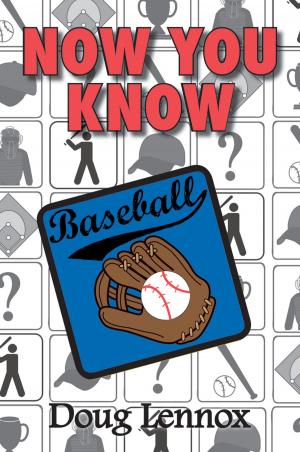Now You Know, Volume 4
The Book of Answers
Nonfiction, Reference & Language, Reference, Almanacs & Trivia, Trivia, Entertainment, Games| Author: | Doug Lennox | ISBN: | 9781459718173 |
| Publisher: | Dundurn | Publication: | September 16, 2006 |
| Imprint: | Dundurn | Language: | English |
| Author: | Doug Lennox |
| ISBN: | 9781459718173 |
| Publisher: | Dundurn |
| Publication: | September 16, 2006 |
| Imprint: | Dundurn |
| Language: | English |
Building on the success of his previous bestsellers, Now You Know, Now You Know More, and Now You Know Almost Everything, this fourth volume is headed straight for the bestseller list! It is Doug Lennox at his best as he masterfully dispenses the answers to quirky questions, never losing sight of the joy of discovering the "why" of ordinary things.
Discover the fascinating histories behind people, places, and words:
WHY DO WE SAY THAT SOMEONE WHO HAS BEEN TREATED BADLY HAS BEEN "HUNG OUT TO DRY"?
Discipline on early British sailing ships was necessary but often extreme. The cat-o’-nine-tails left sailors scarred for life, but keelhauling (tying a victim with a rope and pulling him under a ship) was feared most. If the prisoner survived, he was suspended from a yardarm where he was left hanging for a predetermined period of time.
WHY IS A MILITARY DINING HALL CALLED A "MESS"?
The term goes back to the Middle Ages, when British sailors began calling their meagre and often grub-infested meals a "mess." It evolved into meaning the general area where the sailors gathered to eat. Later it referred to a specific area where men gathered to eat, drink, and socialize.
Building on the success of his previous bestsellers, Now You Know, Now You Know More, and Now You Know Almost Everything, this fourth volume is headed straight for the bestseller list! It is Doug Lennox at his best as he masterfully dispenses the answers to quirky questions, never losing sight of the joy of discovering the "why" of ordinary things.
Discover the fascinating histories behind people, places, and words:
WHY DO WE SAY THAT SOMEONE WHO HAS BEEN TREATED BADLY HAS BEEN "HUNG OUT TO DRY"?
Discipline on early British sailing ships was necessary but often extreme. The cat-o’-nine-tails left sailors scarred for life, but keelhauling (tying a victim with a rope and pulling him under a ship) was feared most. If the prisoner survived, he was suspended from a yardarm where he was left hanging for a predetermined period of time.
WHY IS A MILITARY DINING HALL CALLED A "MESS"?
The term goes back to the Middle Ages, when British sailors began calling their meagre and often grub-infested meals a "mess." It evolved into meaning the general area where the sailors gathered to eat. Later it referred to a specific area where men gathered to eat, drink, and socialize.















